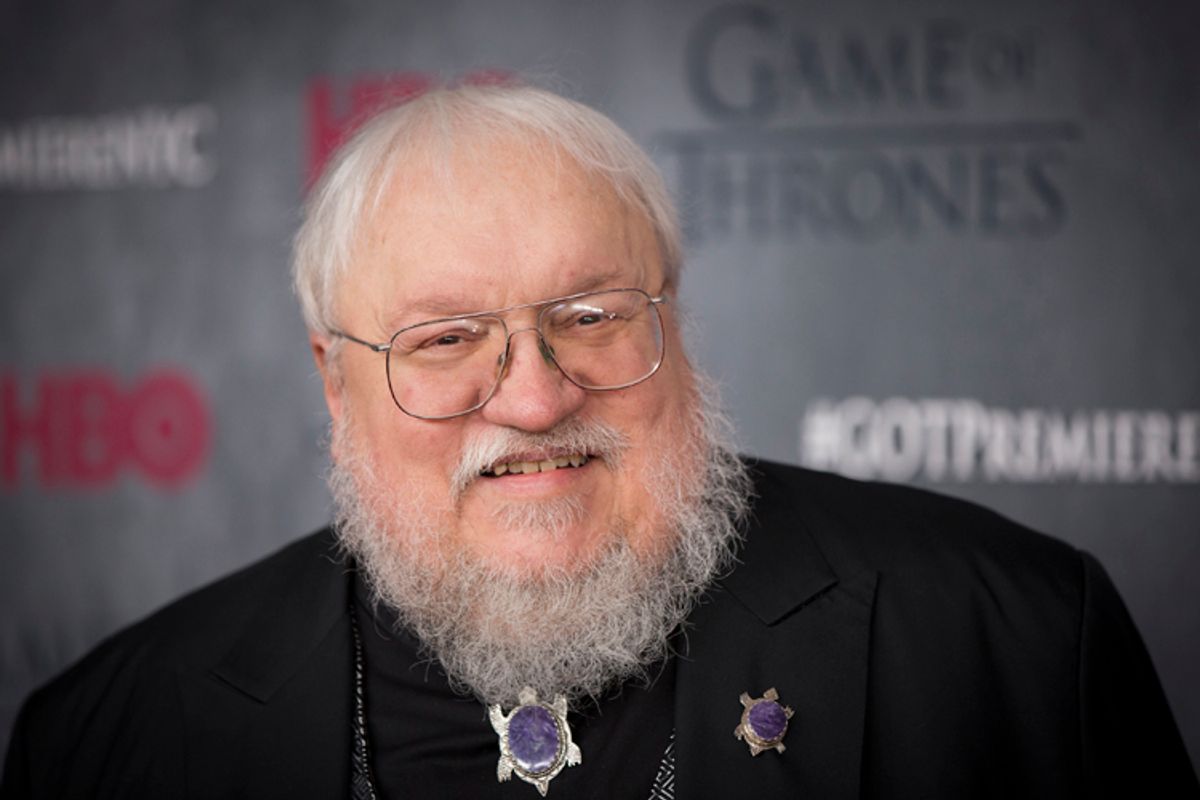There has been a lot of talk about the brutal, often gratuitous depictions of sexual violence on “Game of Thrones,” particularly in the wake of Sansa’s traumatic rape two episodes ago. As our own Sonia Saraiya wrote at the time, "the problem, as ever, with 'Game Of Thrones' rape is not that it exists but that it fails to adequately justify why it exists."
While many of the complaints about the show have revolved around the addition of rape scenes where they didn’t exist in the source material, much of Westeros’ sexist and violent culture is a direct reflection of the world created in Martin's "Song of Ice and Fire" books. Entertainment Weekly spoke to the prolific author about the depiction of women and sexual violence in the books, which Martin defended on the grounds of historical verisimilitude. As he put it, “I wanted [his] books to be strongly grounded in history and to show what medieval society was like."
"The books reflect a patriarchal society based on the Middle Ages. The Middle Ages were not a time of sexual egalitarianism. It was very classist, dividing people into three classes. And they had strong ideas about the roles of women. One of the charges against Joan of Arc that got her burned at the stake was that she wore men’s clothing—that was not a small thing. There were, of course, some strong and competent women. It still doesn’t change the nature of the society. And if you look at the books, my heroes and viewpoint characters are all misfits. They’re outliers. They don’t fit the roles society has for them. They’re ‘cripples, bastards, and broken things‘—a dwarf, a fat guy who can’t fight, a bastard, and women who don’t fit comfortably into the roles society has for them (though there are also those who do—like Sansa and Catelyn)."
Pointing out that he has many female readers who love the books and love the book’s female characters, Martin asks whether “to be non-sexist, does that mean you need to portray an egalitarian society?” and concludes “that’s not in our history; it’s something for science fiction." He also addressed the issue of sexual violence specifically, explaining that it’s part and parcel with the generally violent world he is depicting:
"I’m writing about war, which what almost all epic fantasy is about. But if you’re going to write about war, and you just want to include all the cool battles and heroes killing a lot of orcs and things like that and you don’t portray [sexual violence], then there’s something fundamentally dishonest about that. Rape, unfortunately, is still a part of war today. It’s not a strong testament to the human race, but I don’t think we should pretend it doesn’t exist. I want to portray struggle. Drama comes out of conflict. If you portray a utopia, then you probably wrote a pretty boring book.”

Shares